“It doesn’t rain in our kindergarten anymore. Both children and parents are happy”
The building of “Sălcioara” kindergarten, not repaired in last five decades, had undergone a makeover, and both children and parents are thrilled with the change. With the support of the European Union and UNDP, the people and the authorities of Ceadîr-Lunga have set out to transform their city into an example of energy efficiency.
“We work at full capacity; we have many requests from parents. Several generations passed through our kindergarten and now parents that attended our kindergarten bring their children to us. Until recently, we were ashamed of our building. But now, we are proud of it.” Says Oxana Caragea, the director of the “Sălcioar” kindergarten from Ceadîr-Lunga, while she gives us a tour of the institution.
The exterior of the building has been fully renovated and insulated. Now they are renovating the roof of the building. The five entrances to the building are also being repaired, one of which has been adapted with a ramp. The total investment amounts to more than 2 million MDL, money allocated under the “Mayors for Economic Growth” (M4EG) initiative, funded by EU and implemented by UNDP.
Until recently, the plaster was falling off the walls, rainwater was leaking through cracks. Cold rooms were a normal thing as soon as the warm season ended.
“The walls were limewashed and because there were countless layers, they were peeling off. We did what we could, but our efforts were insufficient. The first floor was practically limewashed every spring, but everything fell off and looked disastrous, including the windowsills,” says the facility manager.
The renovation works started in winter and included major repairs to the exterior walls and their thermal insulation. The kindergarten’s 140 children and its employees enjoy better conditions.


The manager says that thanks to the renovation, they started to save immediately – in March, for example, the institution saved about 30% on its electricity bills.
Zinaida Ghenova, an educator, says she is very happy with the way the institution looks now: “The building is much more elegant and now we are up to standards. Children love us and when they come in the morning, many of them say ‘How beautiful!’”
Ceadîr-Lunga’s portfolio for energy transition
The renovation of the kindergarten as a pilot for possible scaling is not a one-off activity, but part of the town’s mission approach to increase energy resilience and move from an import based and extractive energy system to an affordable and renewable energy set-up for the municipality.
As there is no quick fix to these challenges, the municipality team has designed a number of diverse activities, or mini-projects, to best explore what can move the needle within their local context. The portfolio approach is hence an adaptive, iterative process that is a complementary method to standard project management. It can help decision makers, like the municipality, navigate problems that require a more comprehensive and interconnected perspective.

“Through the portfolio approach, we identified the problem of the city and exploring a number of possible solutions. The process has enabled us to apply new and innovate methods for greater impact and sustainability.”
Oleg Fazli, Municipal team of Ceadîr-Lunga
Energy efficiency is included in all infrastructure projects currently carried out by the municipality. The portfolio of interventions in the field of energy transition supports efforts to attract investments from other development partners.
As part of these endeavors, the municipality initiated a zero-energy retrofit for one of their eight kindergartens. This holistic approach aims to test and refine various strategies with the ultimate goal of achieving an energy-independent future for the residents. The quick results of the kindergarten pilot gave the municipality a proof of concept, which led to fundraising/attracting addition funds outside the existing funding, and now two more out of the total eight kindergartens in Ceadîr-Lunga will be retrofitted.
The municipality is piloting, as part of M4EG facility, several coherent activities on automated traffic lights, LED lighting, awareness campaigns among residents on energy savings, and the design of an energy poverty fund.
With EU and UNDP support, hundreds of street lighting fixtures will be replaced so they can be charged with solar energy. Two pedestrian crossings in the city will also be lit with solar energy, and future plans include changing the lights of eight more pedestrian crossings, thus improving visibility and reducing the number of road accidents involving pedestrians.

The square in front of Ceadîr-Lunga Culture House is also lit by the first solar tree installed in Găgăuzia. The municipality of Ceadîr-Lunga installed the solar tree, solar panels and benefited from a feasibility study partnering with the Science and Technology Park “Euro-Centrum” within the Polish Challenge Fund, an initiative of the Polish Ministry of Foreign Affairs and UNDP in Europe and Central Asia, supporting the transfer of Polish know-how and innovative solutions.
The “Mayors for Economic Growth” initiative is financed by the EU and being run by UNDP as of 2021. It strives to empower secondary cities in Armenia, Azerbaijan, Georgia, the Republic of Moldova, and Ukraine to explore new trajectories of economic growth to become more attractive and vibrant for people and investment.
Reposted from UNDP Moldova.
Read the article in Russian.


